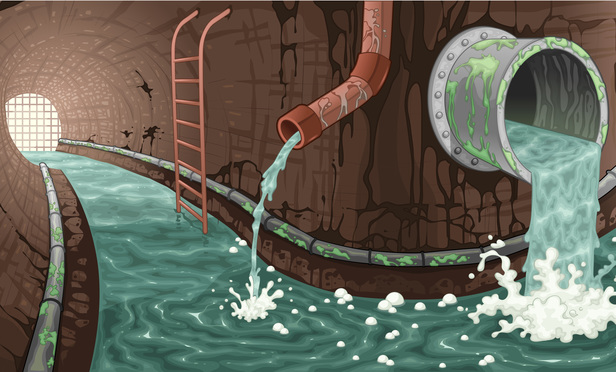David G Mandelbaum
December 27, 2016 | The Legal Intelligencer
EPA's Amendments to the Standards for Hazardous Waste GeneratorsLast month, the U.S. Environmental Protection Agency published its amendments to, and reorganization of, the regulations governing generators of hazardous waste, 81 Fed. Reg. 85,732 (Nov. 28). These rules govern the hundreds of thousands of enterprises nationally that produce wastes characterized or listed as hazardous under the Resource Conservation and Recovery Act (RCRA), 42 U.S.C. Sections 6901-91i. For the most part, these amendments do not change the requirements that generators face, but merely reorganize the regulations in a way that will make old guidance and citations obsolete. However, the final rule also codifies a number of EPA interpretations of the rules found in letters and memoranda that the EPA has written over the years. In addition, in some respects the rules will change when this rulemaking becomes effective on May 30, 2017.
By david g. mandelbaum
16 minute read

December 27, 2016 | The Legal Intelligencer
EPA's Amendments to the Standards for Hazardous Waste GeneratorsLast month, the U.S. Environmental Protection Agency published its amendments to, and reorganization of, the regulations governing generators of hazardous waste, 81 Fed. Reg. 85,732 (Nov. 28). These rules govern the hundreds of thousands of enterprises nationally that produce wastes characterized or listed as hazardous under the Resource Conservation and Recovery Act (RCRA), 42 U.S.C. Sections 6901-91i. For the most part, these amendments do not change the requirements that generators face, but merely reorganize the regulations in a way that will make old guidance and citations obsolete. However, the final rule also codifies a number of EPA interpretations of the rules found in letters and memoranda that the EPA has written over the years. In addition, in some respects the rules will change when this rulemaking becomes effective on May 30, 2017.
By David G. Mandelbaum
16 minute read

September 22, 2016 | The Legal Intelligencer
Steps for Young Environmental Lawyers to Take for SuccessAutumn has arrived, and with it the promise of a fresh crop of law school graduates entering practice. That means that all the more experienced young lawyers move up a notch in our oddly hierarchical profession. Soon, they will have to sustain themselves; they will have to find enough work from their employers, their partners, or external clients to keep themselves busy without depending on some other, mature environmental lawyer (like me). There are some steps those young environmental lawyers might take to help the process.
By David G. Mandelbaum
15 minute read

January 16, 2016 | The Legal Intelligencer
Environmental Cases in the Pennsylvania Appellate Courts During 2015This month, I offer a brief review of environmental issues considered by the Pennsylvania appellate courts last year.
By David G. Mandelbaum
7 minute read

December 22, 2015 | The Legal Intelligencer
When Will Paris Affect Pennsylvania Environmental Practice?I suggest that something like the Paris agreement will at the same time affect what we do (a) almost immediately and (b) never.
By David G. Mandelbaum
7 minute read

December 19, 2015 | The Legal Intelligencer
When Will Paris Affect Pennsylvania Environmental Practice?I suggest that something like the Paris agreement will at the same time affect what we do (a) almost immediately and (b) never.
By David G. Mandelbaum
7 minute read

November 17, 2015 | The Legal Intelligencer
Environmental Commitments and the Pursuit of Paradise by the Dashboard LightEarlier this month, the Commonwealth Court decided a case about ending an obligation to fund wastewater treatment that serves as a useful reminder to address termination in environmental agreements of all sorts.
By David G. Mandelbaum
7 minute read

November 16, 2015 | The Legal Intelligencer
Environmental Commitments and the Pursuit of Paradise by the Dashboard LightEarlier this month, the Commonwealth Court decided a case about ending an obligation to fund wastewater treatment that serves as a useful reminder to address termination in environmental agreements of all sorts.
By David G. Mandelbaum
7 minute read

September 15, 2015 | The Legal Intelligencer
When an Agency Changes Its MindMay a regulatory agency change its mind? On July 29, a splintered U.S. Court of Appeals for the Ninth Circuit, sitting en banc, addressed that issue in Organized Village of Kake v. U.S. Department of Agriculture, 746 F.3d 970 (2014). This is a particularly relevant decision as we come to the end of the Obama administration. It is, however, not timely, addressing as it does a regulatory decision made by the outgoing Clinton administration in 2001 and reversed by the incoming Bush administration in 2003, and then no longer defended by the Obama administration.
By David G. Mandelbaum
8 minute read

September 14, 2015 | The Legal Intelligencer
When an Agency Changes Its MindMay a regulatory agency change its mind? On July 29, a splintered U.S. Court of Appeals for the Ninth Circuit, sitting en banc, addressed that issue in , 746 F.3d 970 (2014). This is a particularly relevant decision as we come to the end of the Obama administration. It is, however, not timely, addressing as it does a regulatory decision made by the outgoing Clinton administration in 2001 and reversed by the incoming Bush administration in 2003, and then no longer defended by the Obama administration.
By David G. Mandelbaum
8 minute read
More from ALM
- Legal Speak at General Counsel Conference East 2024: Match Group's Katie Dugan & Herrick's Carol Goodman 1 minute read
- Legal Speak at General Counsel Conference East 2024: Eric Wall, Executive VP, Syllo 1 minute read
- Legal Speak at General Counsel Conference East 2024: Virginia Griffith, Director of Business Development at OutsideGC 1 minute read



